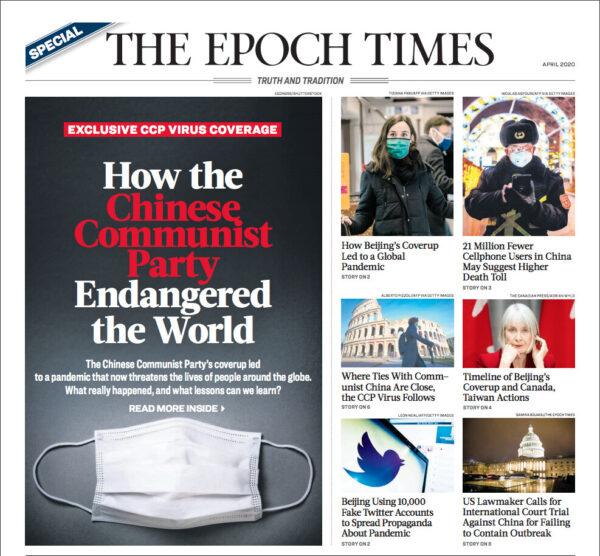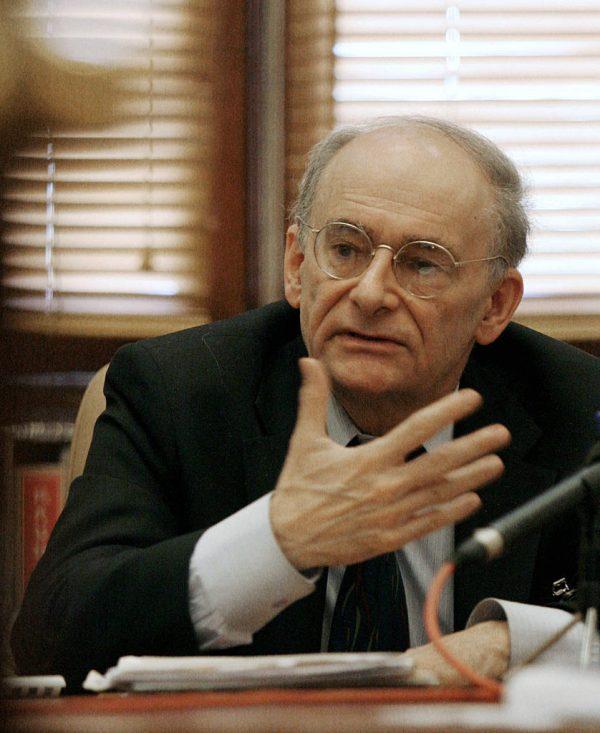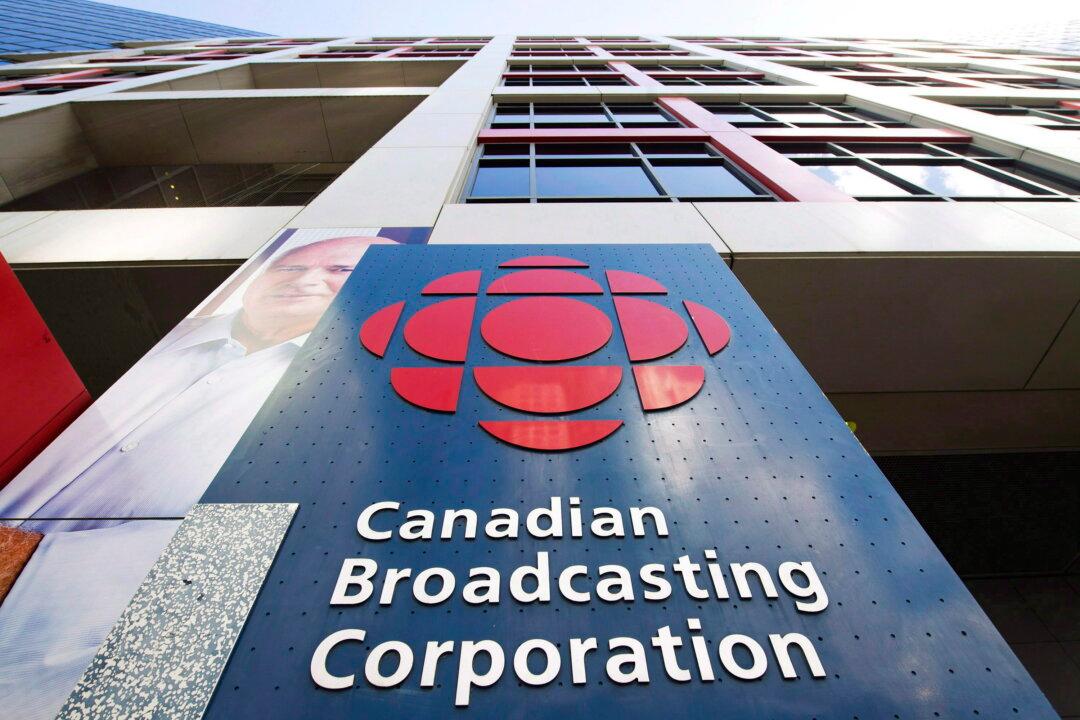“It seems to me that they were trying to reverse engineer information that would allow them to support a predetermined narrative. [It was] more narrative-driven news reporting,” Stephen Noakes, a senior lecturer at the University of Auckland, told The Epoch Times.
“There was a selective interpretation of facts that went on here.”
The CBC recently ran several reports on its different platforms about a special edition of The Epoch Times. The special edition focuses on the pandemic and the role of China’s communist regime in hiding the facts about the virus outbreak in the early days, leading to a global pandemic.
She also noted that the publication doesn’t publish conspiracy theories, contrary to claims made by one person interviewed by the CBC, who said the special edition says the virus was manufactured, although the special edition doesn’t make any such claim.
The special edition was distributed to different neighbourhoods across Canada because the publication “considers that information to be important to Canadians,” according to Gu, and also as part of “sampling” efforts to raise brand awareness and attract new subscribers.
Noakes, a China and foreign policy scholar, says he has been interviewed by the CBC in the past and had high regard for its reporters on “how prepared and professional they usually are.” But he said it was different this time.
“I just perceived a difference this time in the nature of the reporting, and in the nature of the information gathering,” he said. “It just seemed to me that [they were posing] leading questions.”

Noakes says it didn’t occur to him what was happening until he later saw the CBC’s reports and how they had portrayed The Epoch Times.
The CBC’s coverage doesn’t examine the content of the special edition, and instead quotes people commenting on things that are not actually in the special edition.
The broadcaster quotes one recipient in Kelowna who says the special edition “did seem to allude to conspiracy theories like, you know, maybe it [the novel coronavirus] was manufactured.” The special edition doesn’t make any mention that the virus was manufactured.
A scientist is also quoted by CBC as saying there is high consensus that the virus is not “engineered.” The special edition doesn’t include any content saying the virus is engineered.
The CBC reports also include an unnamed mail carrier who says the special edition says the virus is “part of a bio-warfare agenda by the Chinese people.” The special edition doesn’t make any such claim.
And CBC quotes a Canadian Union of Postal Workers representative who says the special edition’s front cover is “promoting xenophobia towards the Asian community.” But the front cover only talks about the Chinese Communist Party hiding the facts about the virus, not the people of China or “the Asian community.”
CBC’s reporting also covers Falun Dafa, a spiritual meditation practice persecuted by the Chinese communist regime. The Epoch Times was founded by Falun Dafa adherents, but doesn’t represent Falun Dafa, according to Gu.
In its coverage of Falun Dafa, also known as Falun Gong, the CBC repeats a slanderous term used by the CCP as a part of its persecution campaign against the group. Falun Dafa has been declared a “protected creed” under the Ontario Human Rights Code. The CBC’s article says “[Falun Dafa] followers say the Chinese government persecutes them,” while in fact the persecution of the practice is well documented by governments and human rights organizations.
Commenting on the CBC’s interview of him and the published reports, Noakes says he has never seen the network “go about journalism in that way.”
He says they ignored his answers in his area of expertise, and instead he felt they were trying to get him to frame The Epoch Times negatively.
In one of CBC’s articles, Noakes, who has researched the persecution of Falun Dafa for years, isn’t quoted on the persecution. He is instead quoted about the funding of The Epoch Times as a media.
The person who is quoted on the persecution is a sociology and communication studies scholar whose research includes media serving the Chinese Canadian diaspora.
The scholar is quoted as saying “there are many stories about how group members [Falun Dafa adherents] were persecuted in China. There could be certain exaggerations but … definitely, there is persecution, and there are violations of human rights.”
Noakes, who says he was interviewed for 30 minutes by the CBC reporters, said he found it very odd that the network didn’t use any of his comments about the persecution of Falun Dafa.
“They didn’t really use any of the stuff I said about how there’s a totally legitimate set of human rights grievances here,” he said.
“They had decided in advance that they were going to report on Falun Gong in this way, and they were going to report on Epoch Times in that way.”
David Matas, an international human rights lawyer based in Winnipeg who has extensively researched Falun Dafa, including China’s state-sanctioned organ harvesting of its adherents, says academics often “raise hypotheticals,” referring to the sociology and communication scholars’ comments on how “there could be certain exaggerations.”

But it’s the reporters who choose what parts of the interview they quote based on the story they want to tell, he says.
“The very fact that they quote a suggestion of a hypothetical possibility means they give some weight to that possibility, and it fits in with the overall theme of the story that they’re trying to portray, and it just shows ignorance [on the part of CBC],” Matas says.
Matas adds that he doesn’t question that some people may perceive the special edition as being racist and complain about it, but he says people like the postal worker quoted by CBC may not know a lot about China and the fact that the one-party totalitarian regime is not synonymous with the Chinese people.
“But CBC should know more,” he says.
Terry Russell, a senior scholar with the University of Manitoba’s Asian Studies Centre who has researched Falun Dafa, says as a major media, CBC has a “responsibility to educate people that the CCP is not China.”
He says the Chinese regime, through its embassies, consulates, and state-owned media, has spread misinformation to deflect criticism of itself by labelling any criticism as being anti-Chinese, and has also spread hatred toward Falun Dafa.
“I don’t think that the CBC has done much to try to defuse that kind of an agenda,” Russell says.
He says he’s disappointed that the CBC “focused so much on the idea that The Epoch Times is promoting a conspiracy theory.”
‘Less Trusting of CBC’
After the publication of its first article on April 29, the CBC later issued corrections and admitted to some mistakes in the article’s headline and reporting.The original headline stated, “‘Racist and inflammatory’: Canadians upset by Epoch Times claim China behind virus, made it as a bioweapon.”
As part of several corrections, the CBC later changed the headline, admitting that The Epoch Times didn’t claim that China made the coronavirus as a “bioweapon,” and the fact that one recipient of the special edition claimed it was “racist and inflammatory” doesn’t justify a headline implying Canadians characterize The Epoch Times as such.
The Epoch Times asked CBC about Noakes’s concerns, including that he found the reporters were engaging in “narrative-driven” reporting when they were interviewing him.
CBC didn’t address this question; instead it said that the online article reported what Noakes said “fairly and factually.”
“We’re sorry to hear Dr. Noake’s [sic] is disappointed with how we used his comments in our story. Respectfully, we disagree with his assessment of our reporting,” Chuck Thompson, head of public affairs, said in an email.
Noakes says he will be more careful in the future and “less trusting of CBC’s good name.”
“I will not be particularly inclined to speak with CBC again,” he says. “I will definitely be a little more careful next time.”





